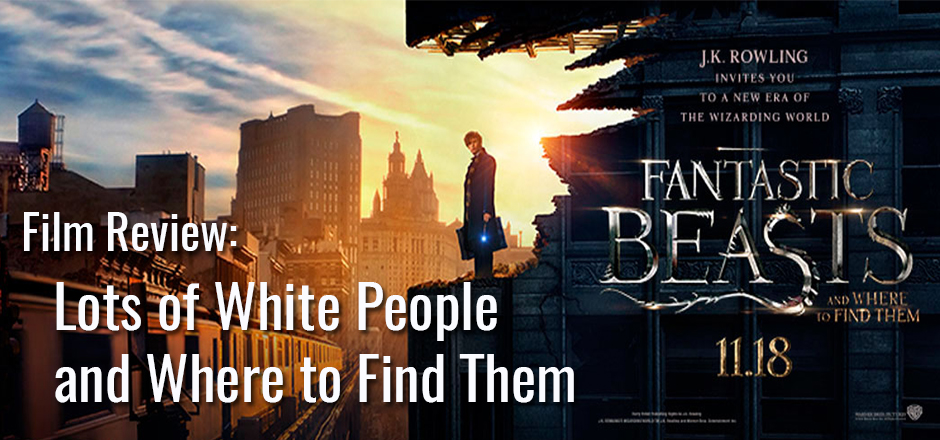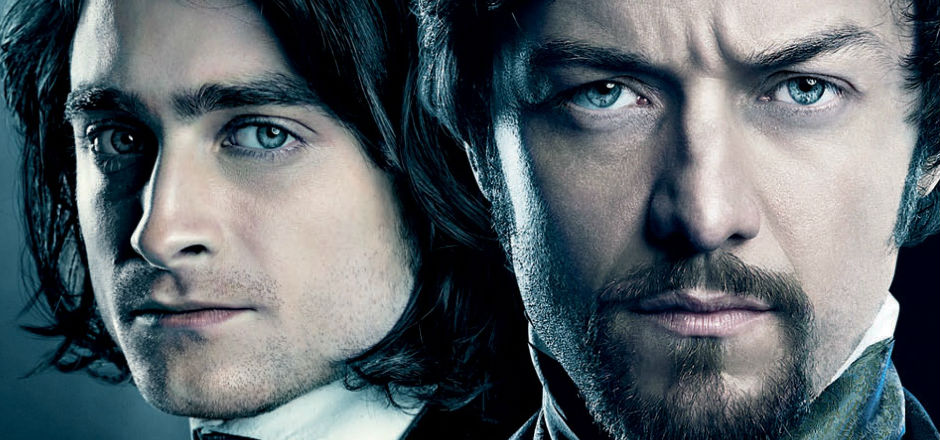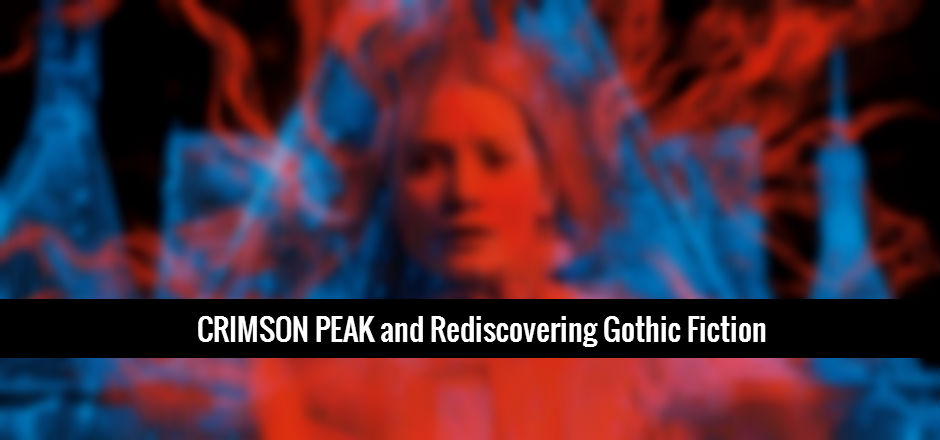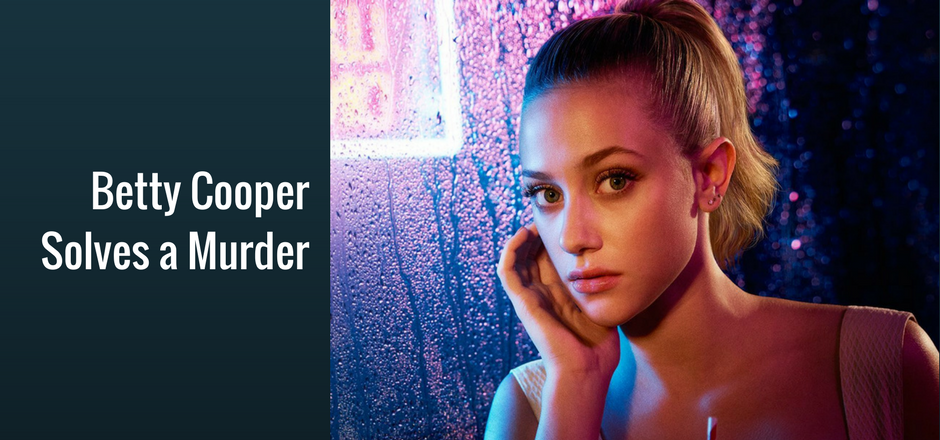If you’re not the sort of person who usually watches anime, it probably doesn’t seem like the sort of thing an intellectual geek might be into. As an anime geek myself, I’m perfectly aware of how non-viewers see anime: a load of slapstick, fanservicey shows with shallow plots, cardboard characters, and little to say about the real world.
I’m not going to deny there aren’t tons of anime series that fit the above bill – again, I’m an anime geek, and I’ve watched plenty of them. But in many cases, anime gets a bad rap among geeks, largely because of the fanservice-oriented aspect of anime merchandising. But as any geek knows, merchandising never really tells the whole story, and many anime are much more thoughtful and thought-provoking than non-viewers assume.
Anime is made for viewers of all ages, and different anime are made for different age groups. Even children’s anime such as Shugo Chara! and Chardcaptor Sakura are surprisingly thoughtful; instead of presenting just a fun magical adventure with a young girl protagonist, the stories discuss topics that can potentially help the viewer grow into a more rounded or more accepting person.
The plot of Shugo Chara!, for example, surrounds the journey of a girl who puts on a specific front to feel more accepted as she takes down that mask and starts to show her true self. Cardcaptor Sakura features many types of people, from a gay couple to foreign exchange students, normalizing otherness in a way that encourages viewers to become more accepting and open to new things and people.
Here, I’ve compiled a list of five starter anime to introduce non-viewers to different genres. This is by no means a complete list, and there are still plenty of complex and thought-provoking series to check out. But the series on this list are fairly well-known and, in some cases, classics, so I’d recommend starting here to figure out what you like and moving on from there.
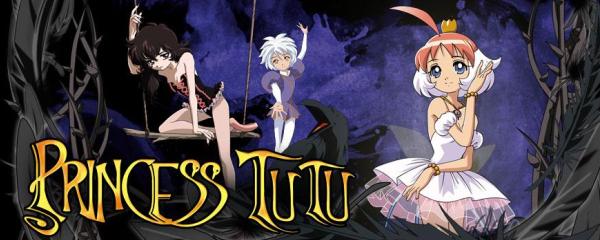
[heading style=”subheader”]Princess Tutu[/heading]
What’ll turn you away: …it’s called “Princess Tutu.”
What’ll pull you in: Redefining the fairy-tale happy ending; use of non-violent strength to solve problems; a variety of classical ballet references
The softest of the five series on this list, Princess Tutu is the story of Ahiru (literally “Duck”), a duck who was turned into a human because she fell in love with a prince. Beyond her transformation into a human, she can also transform into a magical girl named Princess Tutu who dances ballet to defeat dark creatures invading the town she lives in.
The anime spans two seasons, which can be thought of as separate “acts” of a ballet. In the first act, Ahiru defeats evil and gets her “happy ending;” in the second act, that “happy ending” turns on its head, and she must decide what’s more important: her own happiness or doing what’s right.
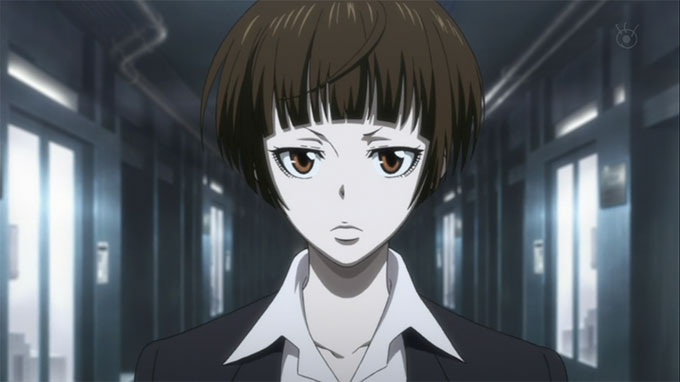
[heading style=”subheader”]Psycho-Pass[/heading]
What’ll turn you away: Generic Shounen Dude is one of the main characters; horrifically disgusting graphics; graphic depictions of criminal assault and murder
What’ll pull you in: Philosophical discussions of humanity; discussions and depictions of the meaning of “law;” contrasting concepts of inherent good
Starting off in a significantly darker universe than the previous listed, Psycho-Pass is a noir-influenced police procedural (of sorts) set in a future where a computer system analyzes citizens to see which of them is inclined towards or has already committed a criminal act, how dangerous that citizen is, and how said citizen may be punished with the computerized gun called an Enforcer.
The series jumps in terms of point of view, but most notably it follows two characters: the brooding Kougami Shinya (aforementioned Generic Shounen Dude) and the bright Tsunemori Akane, both employed in the city’s police department though under different circumstances.
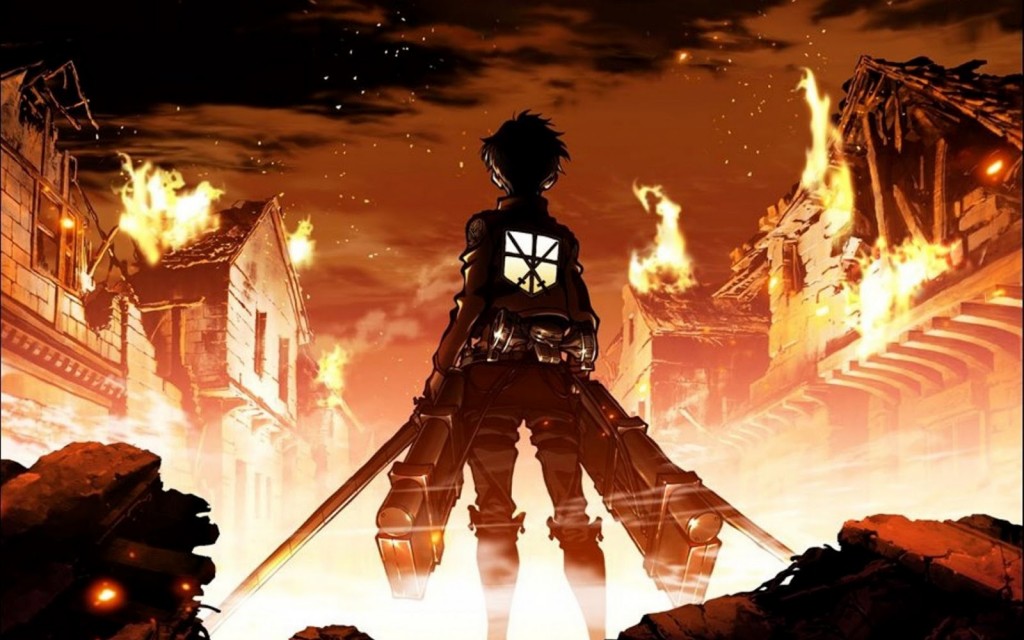
[heading style=”subheader”]Shingeki no Kyojin[/heading]
What’ll turn you away: Very dismal atmosphere; horrifically disgusting graphics; graphic depictions of violence, suicide, and murder; George R. R. Martin-level author cruelty; everyone you like will probably die
What’ll pull you in: Realistic depictions of war without glorifying war; very serious discussions of corruption and abuse even in the face of potential destruction of humanity; accurate depictions of human selfishness and human strength
What you know about Shingeki no Kyojin (Eng. Attack on Titan) is probably related to the millions of cosplays and fan-made opening sequences floating around on the internet. In fact, the cosplay was so popular at New York Comic Con ’13 that Business Insider ran an article about it.
But the (admittedly awesome) cosplays aside, the other thing you may know about the series is its firm roots in the horror and post-apocalyptic genres. The three protagonists – Eren, Armin, and Mikasa – live in a city surrounded by a wall built to keep out giants called Titans who stand several stories high. The story is catalyzed when the biggest-ever Titan crashes through the wall, allowing smaller Titans to run rampant in the towns, smashing stuff and eating random townspeople.
The series’ dark tone makes it an excellent setting to discuss serious topics, and the mangaka of the still-running manga doesn’t shy from any topics. The anime itself covers a number of the ones explored so far in the manga: hope during times that seem hopeless, depictions of how humans really do deal with war, racially-charged crimes, and what survival of the fittest means in a world where survival can never really be guaranteed.
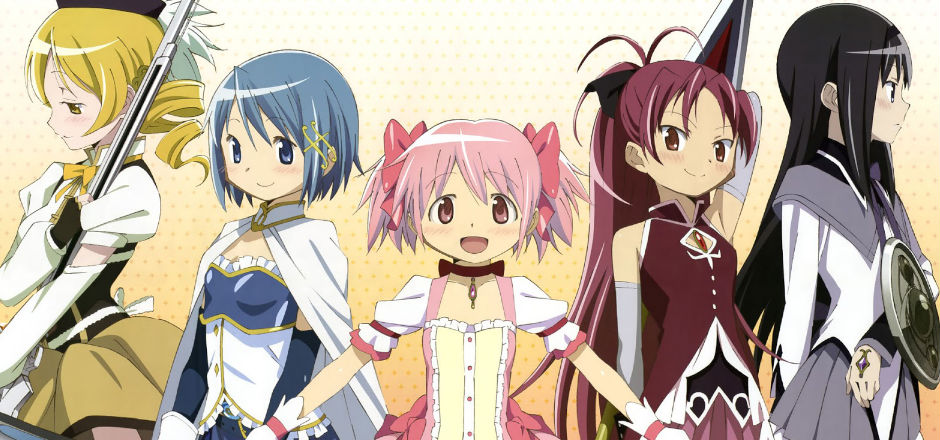
[heading style=”subheader”]Mahou Shoujo Madoka*Magica[/heading]
What’ll turn you away: The magical girl thing isn’t for everyone; the animation style jumps from type to type erratically
What’ll pull you in: Not the magical girl thing you think it is; round, fleshed-out character development; the characters’ internal strength and frailty
Not many people consider the magical girl genre to be terribly thought-provoking, but the intense emotional rollercoaster that is the Mahou Shoujo Madoka*Magica anime (Eng. Puella Magi Madoka*Magica) can’t be dismissed as a serious story.
While not much about Madoka*Magica can be divulged without spoilers, it’s safe to say that the anime, which follows a middle-school girl who enters the mysterious world of witch-hunting magical girls, is a departure from the typical magic-will-save-us-all fantasy plot and explores very serious ideas about friendship and maturity.
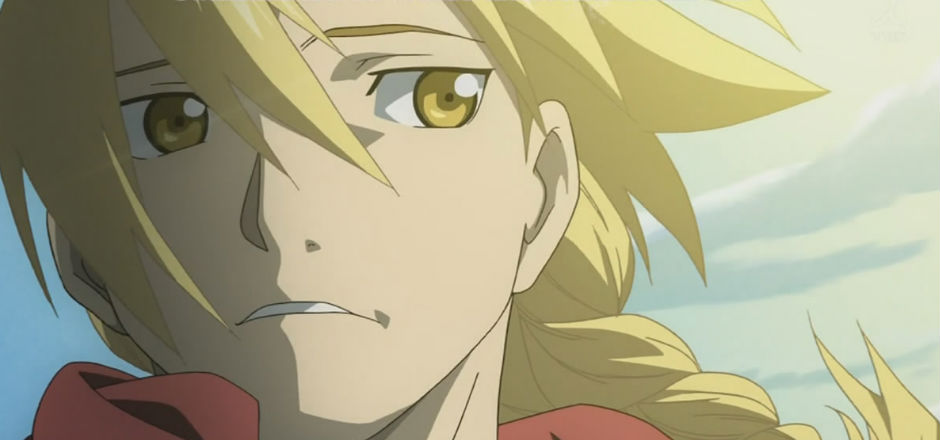
[heading style=”subheader”]Fullmetal Alchemist: Brotherhood[/heading]
What’ll turn you away: Many instances of disturbing imagery; the infamous dog episode; the protagonist is a seriously annoying twerp in the first several episodes
What’ll pull you in: Discussion of humanity; atheism vs. theism as well as the definition of God; the finality of death
The second anime series based on the manga, titled Fullmetal Alchemist: Brotherhood, is more faithful to the manga’s run and much more philosophical than the 2003-2004 series. FMA: Brotherhood is about a pair of brothers who are also alchemists who – despite knowing the law of equivalent exchange and the impossibility of human alchemy – attempt to return their mother to life, losing one’s human body and two limbs from another in the process.
Fullmetal Alchemist is a classic in anime – I would recommend it to anyone new to anime just to be familiar with a series that comes up so frequently. It’s another anime that’s hard to discuss without spoilers – I’ve already spoiled the first few episodes with the series description – but a series with such a solid footing in its fandom can’t be so bad.
Feliza Casano is a fan of anime, manga, and every sort of book as well as editor in chief at Girls in Capes. She has seen every episode of every anime on this list. She writes for all sections of the site, and she’s the one behind GiC’s Facebook and Twitter. Follow her on Twitter @FelizaCasano.

